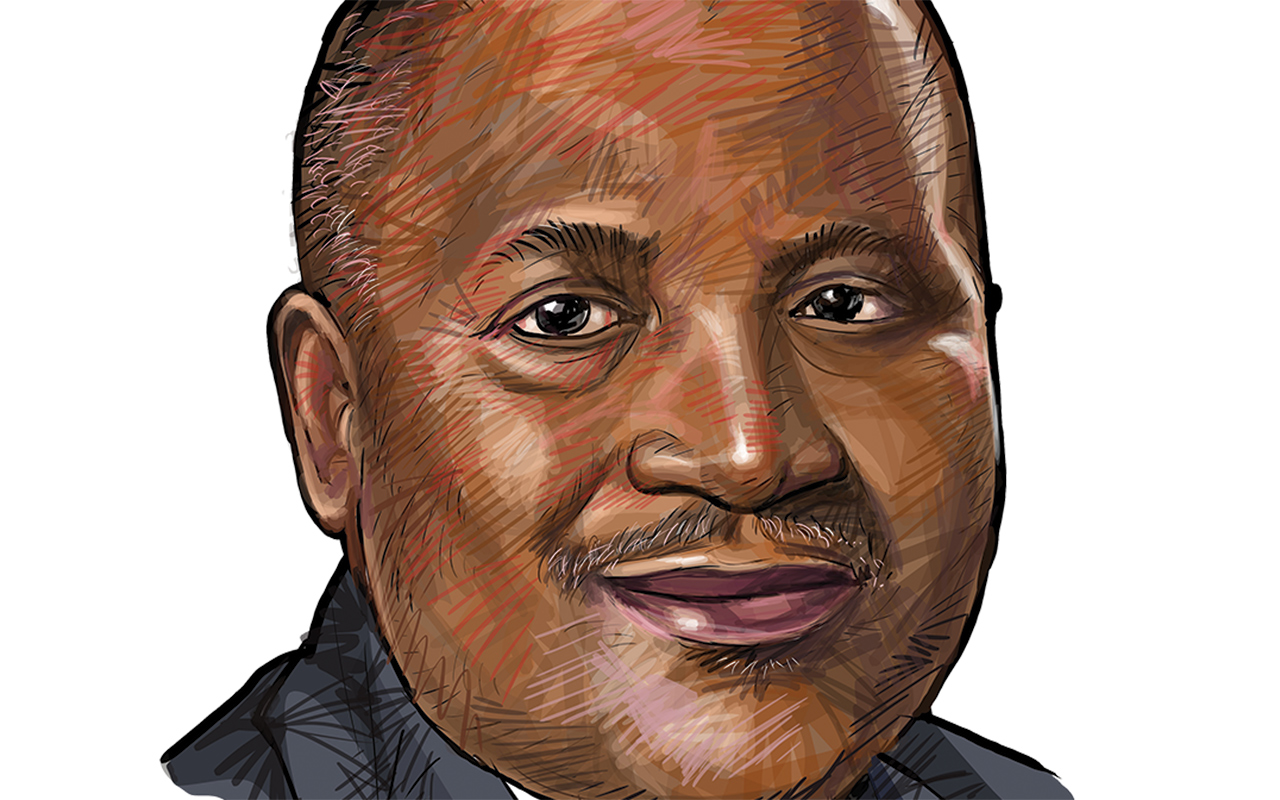
Across the world, countries are upgrading their education curricula as well as trainings in order to align contemporary workforce demand with human capital resources. But in Nigeria, aside the existence of huge gap between the educational curriculum and job market demands, many of the learning facilities – tangible and intangible – are outdated and bereft of latest model.
And the consequence is that many of the institutions including those at basic education level produce workforce that is deficient in required skills needed in the contemporary world.
The stark reality, especially at the basic education level is that, despite learning and teaching are principally aimed at promoting literacy and numeracy; many pupils at the completion of basic education cannot properly read and write.
The result of this foundational problem is already telling on Nigeria as it is ranked 35th with 59.57 per cent literacy rate in Africa and 187th globally. Although, the Federal Government puts the national literacy rate at 69 per cent, while acknowledging wide regional disparities among the six geopolitical zones of the country.
However, some policy makers have argued that 21st century learning and teaching even at the basic education level must look beyond just literacy and numeracy.
This is why some experts argued that government and policy makers should begin to prioritise market-ready curriculum education even at the basic education level, as this is critical to building a resilient, skilled workforce that can adapt to future challenges and drive sustainable development.
It was, therefore, not surprising when the Federal Government, through the immediate past Minister of Education, Professor Tahir Mamman, recently announced the introduction of 15 new trades into the curriculum for basic education in Nigeria.
Mamman, who was among the victims of last Wednesday’s cabinet reshuffle, revealed that the curriculum was approved with a set timeline for implementation, alongside the National Skills Framework, by the National Council on Education (NCE).
Speaking on the new curriculum for basic education in Nigeria, State Coordinator, Civil Society Action Coalition on Education For All (CSACEFA) Lagos Chapter, Stella Francis, noted that focus of the Nigerian Education Curriculum has been largely based on academics at the expense of vocational skills.
“Nevertheless, we must bear in mind that policies seem to abound in the past with the intention of including skills in the training of the Nigerian students, especially with the 6-3-3-4 education system but the implementation has always been the major factor in this laudable initiative.”
Francis, who is also the Executive Director of Glowing Splints Development Initiatives, stated that a vocational skill-based curriculum equips students with practical, hands-on skills that are directly applicable to industries like agriculture, manufacturing, IT, and crafts, etc, making them job market compliant.
She added that this approach could help reduce unemployment, especially among youths, by preparing them for self-employment or jobs in sectors where skilled labour is in demand.
“Moreover, by aligning education with industry needs, a vocational curriculum could contribute to the growth of small and medium-sized enterprises (SMEs), which are crucial for economic development. Students who are trained in vocational skills can either establish their own businesses or meet the needs of local industries, boosting economic productivity.
“In a country like Nigeria, where formal employment opportunities are limited, fostering entrepreneurial mindsets through vocational education can create more self-sufficient workforce and reduce dependency on government jobs.”
Also speaking on the new curriculum, President of the National Association of Proprietors of Private Schools (NAPPS), Chief Abayomi Otubela, stated that the country’s education system is witnessing a transformative shift with the introduction of a new curriculum for basic schools.
“I believe this curriculum aims to address the gap between academic knowledge and practical skills, empowering students to thrive in a rapidly changing world. I believe this new curriculum seeks to achieve the following: focus on vocational skills, reducing unemployment, enhancing national development, holistic student development and preparing for global competitiveness.”
The former minister while announcing the new curriculum listed the new subjects that will be incorporated into learning for pupils to include basic digital literacy of IT and Robotics; vocational and entrepreneurship studies, or trades of building and construction industry that include plumbing, tiling, and floor works, as well as POP installation.
He stated that in the area of hospitality and leisure, event decoration and management, bakery and confectioneries, hairstyling, makeup, and interior design while in the services sector, GSM repairs, satellite or TV antenna installation, CCTV, intercom installation and maintenance, and solar installation and maintenance would be taught.
“We also have garment making and agriculture and processing, which includes crop production, beekeeping, horticulture, sheep and goat farming, as well as poultry and rabbit farming,” the former minister explained.
Speaking on the array of new subjects being introduced under the new curriculum, an educationist, Michael Omisore, said that it is laudable to include and factor these technical, trade and innovative skills into the curriculum.
According to him, it shows the country and its policy makers are thinking of moving from students earning just grades to also being equipped with skills. “That is important because long after they are done getting academic grades, they will still be using the skills they have developed.”
Omisore, however, observed that the concept and philosophies around the new curriculum are not entirely new idea because the 6-3-3-4 educational system itself has these technical and trade skills embedded in it as subjects.
“So, we may need to ask ourselves why we failed to implement it with the 6-3-3-4 programme. Back then in the 80s, when the 6-3-3-4 was initiated, my set was the maiden set in junior secondary school in Oyo State that should have benefitted from the programme.
“We saw equipment for wood work, metal work and so on brought to the school, but throughout the six years in secondary school, we never used those machines one day. And they were never used even after, such a huge investment going down the drain, because of poor implementation. That is where the problem has always been with education in this country, poor implementation.”
On his part, Otubela observed that as Nigeria integrates into the global economy, having a workforce with diverse skills is crucial.
He added that the new curriculum aligns with global trends in education, where vocational training is seen as a key factor in reducing youth unemployment and fostering economic resilience.
“In my opinion, this shift in the curriculum is a step toward creating a more adaptable, skilled, and independent generation of Nigerians. By integrating vocational education with traditional academics, the government is ensuring that students are better equipped for the challenges and opportunities of the future.”
While announcing the new policy direction on basic education curriculum for the country, Prof Mamman also said the implementation of the new curriculum would commence in January 2025, as it aims to boost the skills and employability of graduates from primary and junior secondary schools.
He added that the government would use the next three months to fine-tune the arrangements to ensure that both private and public schools fully implement the curriculum starting in January next year. This includes the training of teachers, the development of teacher guides, and improvements to infrastructure, among other preparations.
Commenting on the timeline for the commencement of the new curriculum, Francis observed that it might seem as though the Federal Government is rushing the implementation of this policy without making adequate preparation for its implementation.
She said: “As laudable as this policy direction might be with its positive implications for the economy, there is a need for the government to put proper structures and systems in place for its implementation.”
She stated that implementing vocational education requires substantial investment in infrastructure, equipment, and training facilities, which are often lacking in Nigerian schools.
“This could limit the scope of vocational programmes. The Federal Government must make huge investment in infrastructural development, and equipment if they really mean business.”
Also speaking on the starting time for the new curriculum, Otubela noted that proper implementation requires a multifaceted approach that includes funding for infrastructure upgrades, teacher training, and the provision of learning materials.
“To ensure success, the government must take active steps in the months leading up to January 2025 to provide schools, particularly in underserved regions, with adequate resources.”
He argued that without strong commitment in these areas, the implementation risks being delayed or ineffective.
Similarly, looking at the content of the new curriculum for basic education and the component of technical education in the 6-3-3-4 system that was badly implemented, Francis said that the Federal Government would need to foster an inter-ministerial collaboration between the Ministry of Basic Education, Ministry of Women Affairs and Poverty Alleviation as well as, in the case of Lagos State, the Ministry of Wealth Creation to effectively implement this curriculum in view of the fact that the current teaching staff in the schools may not have the requisite skills set to implement this curriculum.
“The Federal Government might also need to collaborate with the private sector. Vocational education necessitates stronger partnerships between schools and industries to ensure that students gain real-world experience. Companies can provide internships, apprenticeships, and on-the-job training, helping students transition smoothly from school to the workforce.
“A vocational skill-based curriculum has the potential to transform Nigeria’s education sector by addressing unemployment, fostering entrepreneurship, and promoting economic growth. However, successful implementation will require significant investment, mindset shifts, and policy reforms to overcome existing challenges,” Francis stated.
Many have argued that the implementation of the 6-3-3-4 system was a failure, which is why the country now even depend on artisans from neighbouring countries at construction sites and in other similar sectors.
Otubela said the failure of 6-3-3-4 owed largely to poor implementation, inadequate funding, and insufficient teacher training.
“To prevent similar issues with the new curriculum, government could consider phased implementation rather than a sudden nationwide rollout.”
He stated that a phased approach would allow for adjustments based on feedback from pilot programmes.
Otubela also stressed the provision of adequate infrastructure and resources. “The government must invest in upgrading facilities in schools, especially in rural and underfunded areas, to support vocational subjects.”

“The government needs to establish a robust monitoring and evaluation system that will help track the progress of the curriculum and make necessary adjustments to prevent failure,” Otubela said.
He added, “Without proper training, teachers will be unable to deliver the practical components of the curriculum effectively, making it more theoretical than hands-on.
“Private school owners, teachers, and parents must be actively involved in the planning and rollout of the curriculum. Lack of engagement may lead to poor adaptation and slow implementation.”
It is worthy to note that in most cities in Nigeria, private operators are major providers of basic education. For instance in Lagos State, there are over 18,000 primary schools with more than 70 per cent of the schools owned and managed by private operators. This is because there are only 5622 public primary and secondary schools. Ironically, majority of the schools by these private operators are unregistered schools.
It was observed that in some of these unregistered schools, the operating environment is not fit for healthy animals, yet they are being used as schools, while some others are mini-religious halls that lack basic safety measures, including windows for proper ventilation, let alone having the facilities to accommodate the equipment for the new curriculum.
Otubela insisted that private schools have a critical role in delivering basic education across Nigeria. “However, many of these schools are already grappling with economic challenges and high operating costs. Unfortunately, there hasn’t been sufficient engagement with private school owners regarding the new curriculum and the financial investment it requires.”
He therefore, suggested the government should consider offering grants or subsidies to private schools to enable them to acquire the equipment and hire the additional staff needed for vocational training.
“The government should collaborate with private organisations to help ease the financial burden on private schools by providing equipment and technical support.
“The government can help reduce costs for private schools by offering free or heavily subsidised training for teachers in vocational subjects.”
With many of the schools not having the equipment to train the pupils, will it not reduce the new curriculum to theoretical training, Otubela agreed, saying without the necessary infrastructure and equipment, the vocational aspects of the new curriculum risk becoming purely theoretical.
“This would undermine the curriculum’s purpose, which is to provide practical skills to students. The government must ensure that public schools and low-cost private schools are equipped with the tools, facilities, and teaching aids required for hands-on learning.
“Furthermore, shared vocational training hubs could be established in local communities where multiple schools can access the equipment and workshops necessary for effective training,” Otubela suggested.
On his part, Omisore noted that like the current education roadmap developed by the Federal Ministry of Education like the new curriculum looks good on paper, but the problem is the political will, the competence, and the feasibility of the structural framework for the implementation.
“For instance, I have always believed that every policy in education should have a bottom-up approach, and not a top-down approach. Basic education in this country is run on the state and local council level. So, when we have policies being developed at the federal level without necessary input and imprint from stakeholders from the local and state levels, not just those in education administration itself, it will be difficult to run that policy effectively.
“So, the approach to policy formulation in education must be from the bottom and coming all the way to the top, and not the other way round. Also, we must never underestimate what it will take to run the policy, and what the policy will really require. In the 6-3-3-4 system, the technical skills as subjects are designed to be introduced at the junior secondary school level, while the students will really only go into their practice in senior secondary school.
“What the Ministry of Education is proposing now is from the primary school. How do we make the skills and subjects relevant from the primary school level? How do we effectively train and equip teachers across the board to take the lessons? At what point or level do we make a transition from theory to practice? What about the equipment that will be needed? How do we intend to use digital means to connect classroom learning to reality in the outside world?
“For instance, we have Civic Education being made a compulsory subject for secondary school students in the country, and in my estimation, it is all classroom theory, without no impact on the bottomline of the students imbibing the ideals of the subject.”
Meanwhile, the Registrar/Chief Executive of Teachers Registration Council of Nigeria (TRCN), Professor Josiah Ajiboye, recently said that based on a survey carried out by a consultant working with the TRCN, over 70 per cent of teachers in private schools in the Southwest including Lagos are not TRCN certified.
He added: “Whereas a large percentage of teachers in public schools are qualified and have registered with TRCN, the same cannot be said of teachers in private schools.
“The TRCN has focused on mobilisation of teachers in private schools to first get qualified by registering for Postgraduate Diploma in Education or Professional Diploma in Education as the case may be, to make them registrable with the TRCN so that they can be certified.”
Ajiboye noted that some private school owners promote quackery in teaching to maximise profit, as the private school owners employ just anyone and unleash them on the children.
The Guardian contacted the Director, Public Affairs, Lagos State Ministry of Education, Mr Kayode Sutton, on concrete plans for the implementation of the new curriculum including the rollout of equipment for each of the new subjects in each of the schools across the state.
Sutton said that the state government under Governor Babajide Sanwo-Olu is ready to implement the new curriculum and even take it higher, however, the state is still expecting a template from the Federal Government on implementation of the new curriculum.
He added that once the Federal Government makes available the template, Lagos State government will rollout its action plan.
The Director, Information of the Federal Ministry of Education, Folasade Omoboriowo, was also contacted.
After informing her of the issue being worked on, she did not even listen to the questions, declining comment. She said she only relates with and takes questions from a specific reporter in The Guardian and will not relate with anyone else.
Meanwhile, the sudden change, last Wednesday, in the leadership of the Federal Ministry of Education with the exit of Prof. Tahir Mamman and redeployment of the Minister of State for Education, Dr. Yusuf Sununu to Humanitarian Affairs and Poverty Reduction Ministry in the same capacity, could also affect the January 2025 take-off date for the implementation of the new policy. But stakeholders are optimistic that their successors – Dr. Tunji Alausa and Dr. Suwaiba Ahmad (Minister of State) – should be well-disposed to the new curriculum given its multifaceted benefits.






